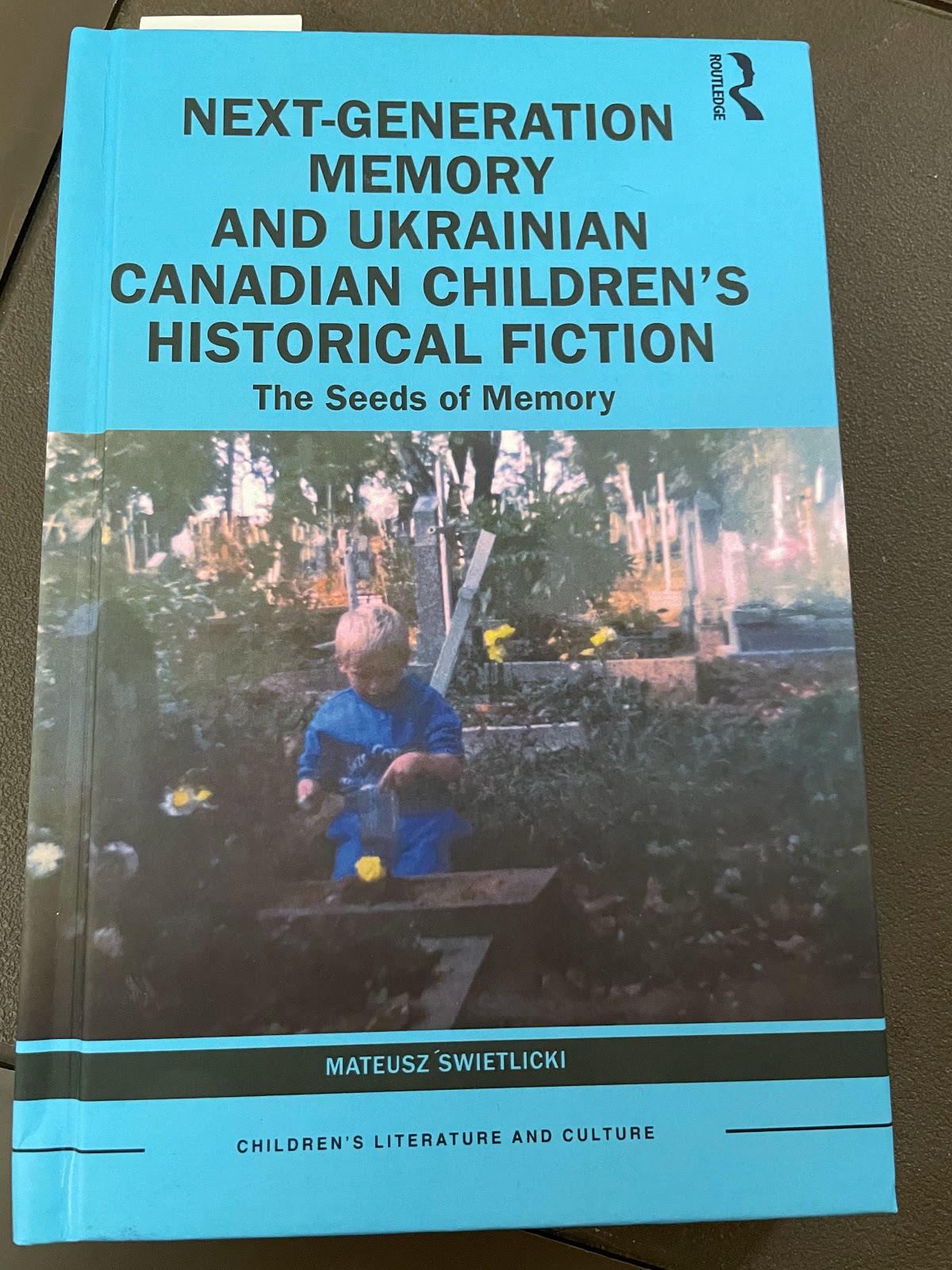Canadian authors and Ukrainian memories come together in a new textbook released by Routledge this week. Very exciting (and scary!) to see my earlier books mentioned in a new academic release, Next- Generation Memory and Ukrainian Canadian Children’s Historical Fiction, The Seeds of Memory, by Dr. Mateusz Swietlicki, Assistant Professor of English Studies at University of Wrocław in Poland.
Wrocław, known as Breslau until 1945, is a historic city on the Oder River in what was once known as Nieder-Silesien, or Lower Silesia. But its tranquil setting belies a violent past. Breslau, one of Hitler’s fortress cities, witnessed brutal fighting in the final months of the war. I can't help but think of today’s war and the destruction happening in Bakhmut.An old woman I used to visit in a local nursing home had lived in the area. In the final months of her life, as delirium took over more and more of her consciousness, she’d again be the fifteen-year-old teenager hiding in the woods of Lower Silesia, evading the Soviets, calling out to her parents. Once I sat helplessly with her for a whole hour, while she’d cry out, “Mama, wo bist du?” (Mama, where are you?) What memories will those affected by today’s war have when they’re old? Wars finally do end, but traumatic memories burrow deep inside a person, waiting for their chance to be relived.
Wrocław, Poland is an old University city with a youthful population. Not only is its town centre a UNESCO World Heritage site, more amazing, to me—a bookworm—is that in 2019 Wrocław was a UNESCO City of Literature. How cool is that? I didn’t even know that they had such a thing. With a bit of googling, I discovered that Canada’s UNESCO city of literature is Quebec City, granted that privilege in 2017. What are the criteria, you ask? Check this link.
For me, the thrill of having a textbook that refers to my mom’s story empowers me to keep researching, writing and sharing. My earlier books died premature deaths and I'm sad for that loss. The story of my mother’s kulak childhood and of collectivization was the beginning of my writing journey as I explored the source of my family’s homelessness and fracturing. Having found the story of the windmill and then losing it to unstable publishers still hurts and lesson learned! Having the kulak story mentioned in this academic text gives me courage to keep trying.
I’m grateful to this Polish academic who noticed The Kulak’s Daughter/Red Stone on Goodreads and sparked some life back into her. Even if her story’s no longer available in book form, at least there’s a conversation about her experiences of collectivization and the 1930 liquidation of the kulaks. In a world where truth is being manipulated by leaders like Putin, memories of those who lived through past atrocities matter ... more than ever.
I got my own copy of Dr. Swietlicki’s book earlier in the week and can’t wait to dive in. I’m sure I’ll be posting about it again as I peruse the other novels discussed alongside my own.



2 comments:
I hope Red Stone and Broken Stone get reissued sooner or later!
Would be nice. Thank you!
Post a Comment